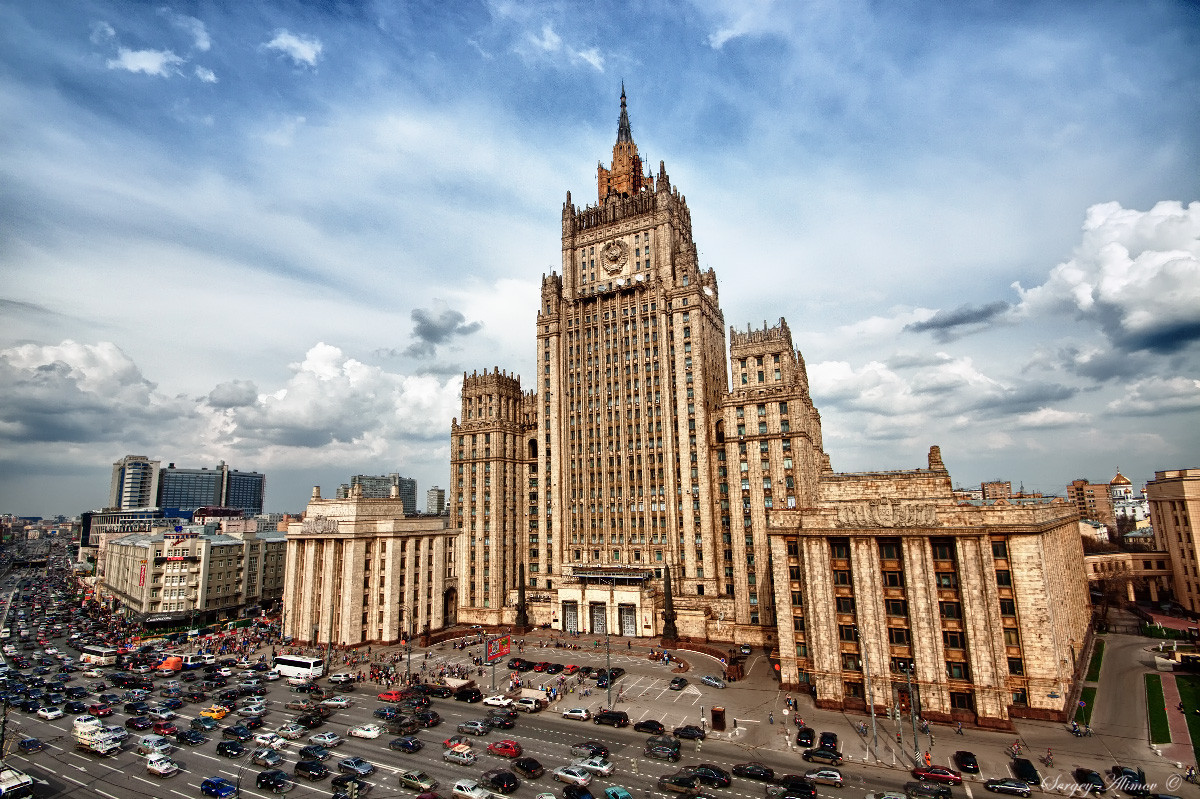From the way Russia’s government sees it, the country has all of the necessary resources to set up its own version of the World Wide Web, free from western influence and any reliance on partnerships with western governments.
"The primary thing that could lead to such outcome is the policy of our Western partners, in particular the imposing of double standards,” said Ilya Rogachev, the Director of the Russian Foreign Ministry’s Department for New Challenges, according to TASS.
“If they continue to impose double standards then we can start talking about creating a parallel internet in Russia, as a sort of a worst-case scenario,” he said.”
Talk of creating a parallel, Russian version of cyberspace first appeared in 2016, when the Ministry of Communications proposed legislation on state control of Internet traffic.
"Our country must be ready to be disconnected from the global Internet," said German Klimenko, a former Internet adviser to the Russian president, commenting the communications ministry’s proposed bill. According to Klimenko, any legislation should not be taken as the government’s attempt to control the Internet, but rather aim towards “increasing Russian independence within the network, and preventing unfriendly actions against the country undertaken by using the Internet."
In 2017, President Putin ordered that the government develop independent root name servers for BRICS states, which include Brazil, Russia, India, China, and South Africa. Servers are supposedly ready to go online by August of this year, and provide a level of back-up support to the BRICS countries’ governments in case of a cyber attack.
Russia ranked tenth in the 2017 Global Cybersecurity Index, largely thanks to its independent root servers that separate its networks from those like the International Corporation for Assigned Names and Numbers (ICANN) system, the Internet Assigned Numbers Authority (IANA), and VeriSign, an American company that operates an array of network infrastructure.
The dominance of the U.S. and some EU member states in controlling cyberspace has irked the Kremlin, which actively seeks to create a secure platform for itself.
"In this area, it is necessary to act in such a way so that all partners’ demands are complied with as much as possible, but some are deliberately acting to the detriment of other countries," Rogachev said, saying that Russia is concerned about cyber crime, terrorism, and violent extremism.
Russia plans to propose at the UN General Assembly annual meeting in September a resolution on the criminal convention on cybersecurity, which it expects to provide protection of information technologies from cyber attacks all over the world.
"We have prepared a draft criminal convention and it is necessary to make sure that debates on this issue begin based on this or some other draft document," Rogachev said. "The issue will be submitted for discussed by [the General Assembly’s] Third Committee in September or early October."







 President Ilham Aliyev shed light on the evolving contours of the peace process with Armenia during an international conference in Baku this week. ...
President Ilham Aliyev shed light on the evolving contours of the peace process with Armenia during an international conference in Baku this week. ...
 Azerbaijan and Armenia started the process of demarcation of their border on Tuesday, with the installation of the first border markers based on ge...
Azerbaijan and Armenia started the process of demarcation of their border on Tuesday, with the installation of the first border markers based on ge...
 Iran has refuted reports of alleged damage to Shimon Peres Negev Nuclear Research Centre located southeast of Dimona, Israel, during the recent air...
Iran has refuted reports of alleged damage to Shimon Peres Negev Nuclear Research Centre located southeast of Dimona, Israel, during the recent air...
 Iran and Pakistan have signed eight cooperation documents in various fields, and agreed to strengthen ties to fight terrorism in the region.
Iran and Pakistan have signed eight cooperation documents in various fields, and agreed to strengthen ties to fight terrorism in the region.



